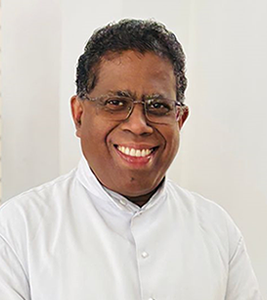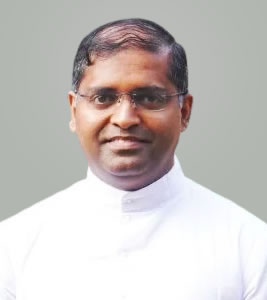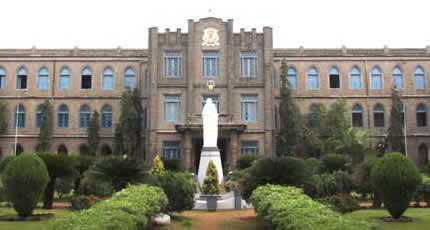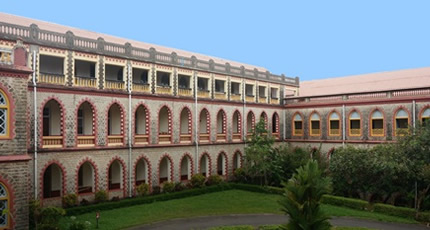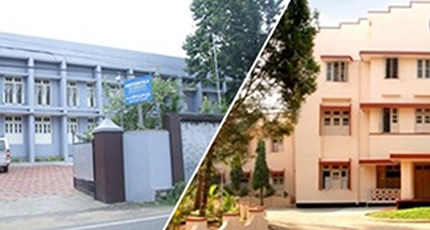The Cycle – III of Theology which is a research course leading to the Doctorate in Theology (D.Th.) is the highest level of academic studies in Theology. Its objective is specialization in a particular area of Theology as well as refinement in the methodology of theological research.
Doctorate In Theology (D.Th.)
1. Eligibility
For admission to the Cycle III of Theology leading to Doctorate in Theology (D.Th.), the applicant must hold a canonically valid Master’s Degree/Licentiate Degree in Theology (L.Th.) or its equivalent in the field of his/her doctoral research with at least a high first class. The mode of commutation of any of the requirements for Doctorate with the courses one has done in another ecclesiastical Faculty/Institute/University shall be determined by the Faculty Council, taking into consideration the merits of each case. The Faculty Council shall also decide the equivalence of the Degree of the applied candidate with the degree of this Pontifical Institute. The Faculty Council has the right to demand from such students to attend the entire or part of the Second Cycle (L. Th) with corresponding examinations, if it finds necessary for admission to the Doctorate.
2. Admission
Admission is open to all who have the proper qualifications. The candidates shall be introduced and recommended by his/her Major Superior/Ordinary or a competent person acceptable to the Institute. Admissions shall be given only at the beginning of each semester, i.e., in June and October. The cut-off date of admitting a student for any degree in the institute is limited to the 15th day of the working day. True copies of the certificate and marks sheet of the previous academic Degrees are to be submitted. A testimonial letter from the Dean of the Faculty / Director of Doctoral studies where the student completed the Master’s Degree is to be submitted.
3. Courses
The candidate should do a minimum number of courses (at least 2) in the first year of the Third Cycle and the course on methodology. These courses are intended to facilitate the doctoral research of the candidate. The course can assume varied form such as lectures, seminars, tutorial courses, assignments, suggested readings, discussions etc. followed by a written or oral evaluation.
4. Duration
The students are required to devote at least three years (six semesters) to their research work, which may be extended up to five years. The Academic Council may grant further extension after examining the merits of each case. If the research is not over on completion of the granted period of time, the student has no right to continue as a student of the Doctorate programme. The students are expected to spend normally the first three years of the Doctorate in regular contact with the Institute. During this cycle, the students will carry out research on some particular topic that will contribute to scientific progress of Sacred Sciences and allied disciplines, especially in the areas of Systematic Theology, Spiritual Theology and Biblical Theology.
5. Guide of Doctoral Research
The guide of the Doctoral research shall be one of the professors of the faculty, including professors’ emeriti, in consultation with the Director of Doctoral Programme. If the candidate chooses the guide from any other Faculty, he/she is to be approved by the faculty Council.
6. Doctoral Research
1. Candidates for the Doctor’s Programme in biblical theology will be required to have at least a reading knowledge of classical languages such as Hebrew, Greek, Syriac and Latin as may be required by the nature of the research, and also working knowledge of modern European languages, besides English, according to the area of research undertaken. The ancient and modern language requirement will be fixed by the Director of the doctoral programme according to the area of specialization.
2. The research programme under the guidance of the director of the Doctoral Dissertation during the first two semesters shall be the following:
2.a. Those who did L.Th. in the Pontifical Institute must do two faculty seminars in which the members of the faculty and the students of L.Th. and D. Th are present. A summary of the presentation at the seminar and some other important points connected with the theme are to be made available to the participants of the seminar for discussion.
2.b. Those who have completed L.Th. elsewhere should attend minimum two courses or do two tutorials or present two research papers which are related to the area of their specialization which may be directed by the guide of the candidate or by any professor of the faculty approved by the Director of Doctoral programme.
2.c. The candidate shall meet his/her guide regularly and discuss the progress of the research.
2.d. The Director of the Doctoral Course is expected to present an annual report of the performance of the candidate to the Faculty Council.
7. Dissertation and Public Défense:
1. After having completed all the requirements, the candidate shall present a schema of his or her doctrinal dissertation in consultation with the guide, who is approved by the director of D. Th Programme, consisting not less than 15 pages to the faculty council through the director of the doctorate programme.
2. The topic and the scheme of the Dissertation has to be approved by the professors appointed by the Faculty Council or the commission appointed by the dean. Once the schema is approved, the faculty council allows the candite to proceed with his or her research work.
3. The Dissertation must lead to the progress of theology or of allied sciences. It must thus imply the discovery of new facts, or new correlation of facts, or a new interpretation of facts, or new solutions to problems, or a new interpretation of theological doctrines, or a new understanding of earlier theologians of genuine importance.
4. The minimum number of pages for the Dissertation shall be 200 pages (Ca 45000 words) in patent size excluding footnotes and bibliography.
5. The doctoral candidate, after completing dissertation has to submit three bound copies to the faculty council properly evaluated and duly signed by the guide through the director of D.Th programme and the faculty council appoints two professors as examiners preferably from the same area of specialization to examine whether the particular dissertation is worthy to be defended publicly.
6. The guide evaluates and reports that the corrections which are proposed by the examiners are properly done and as per the report of the guide the faculty council appoints first and second readers and the director of D.Th programme takes necessary steps for the public defence.
7. The panel of examiners readers may include competent professors from the Institute and teachers from other ecclesiastical Faculties in India and abroad preferably from the same area of specialization.
8. The approved dissertation must be publicly defended before the college of professors and students of the faculty. The public defence will last at least one and a half hour, before a board of three examiners consist of the guide and two other Readers. The panel shall be chaired by the President. Four hard copies as well as one soft copy of the Dissertation shall be submitted to the Registrar of the Institute at least two months before the date of defence.
9. If the panel of examiners is divided on giving a favourable award, a second session may be arranged after six months, and the decision arrived by them shall be final.
10. The Degree of Doctor will be conferred when the Dissertation or at least a significant part of it has been published and the required number of copies given to the Institute.
8. Marks and Grading System
- 90-100 % High Distinction (Summa cum laude)
- 80-89 % Distinction (Magna cum laude)
- 70-79 % First Class (cum Laude)
- 60-69 % Second Class (Bene Probatus)
- 50-59% Third Class (Probatus)
The grade is determined taking into consideration the aggregate of the marks obtained from the Seminars, Courses and Dissertation in the following proportions:
Research papers, Tutorial, Seminars and other courses: 10% - Written Dissertation: 60%
- Public Defence: 30%
9. Special Fees
Besides the annual fees the candidates shall pay special fees for the Dissertation Approval, for the Public Defence and Submission of the corrected manuscripts. In case of reregistration of doctoral students after the stipulated period, a re-registration fee will be charged.


